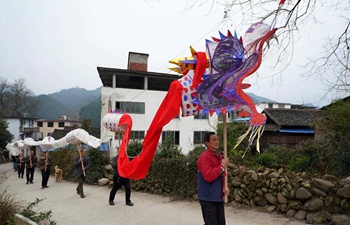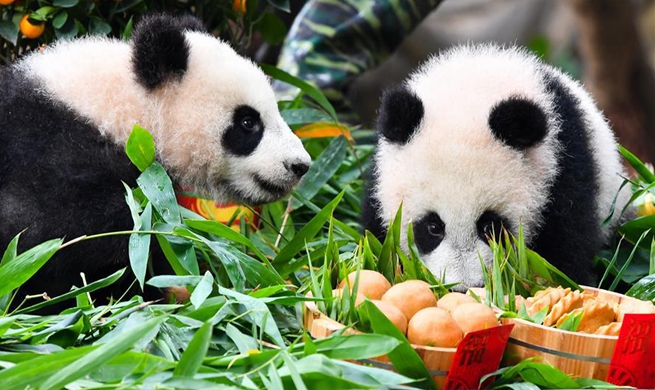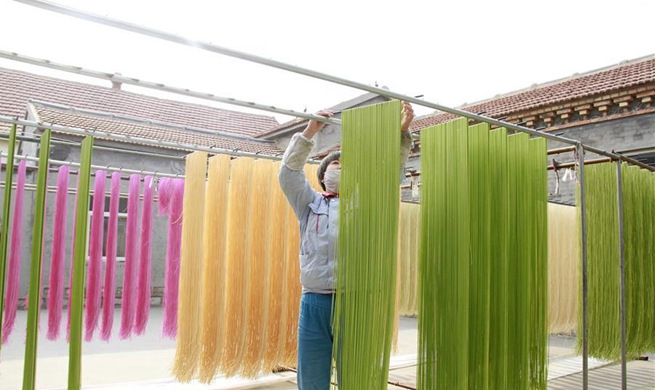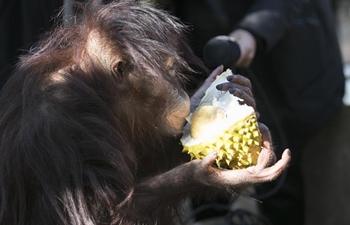SYDNEY, Jan. 29 (Xinhua) -- Global food security could be under threat from an increasing numbers of food production shocks, according to an Australian study released on Tuesday.
Led by researchers from the University of Tasmania (UTAS), the study assessed food production data for crops, livestock, fisheries and aquaculture between 1961 and 2013.
They found that there were 226 shocks, or sudden drops in an area of food production, across 134 nations increasing in frequency over the past 50 years.
"Increasing volatility in our food production necessarily means that how much we're producing, how much is available, the prices, and how much globally we can get of certain food types is affected," lead author Richard Cottrell told Xinhua.
According to Cottrell the main causes behind the shocks varied between production areas.
For crops, extreme weather and climate events such as floods and droughts played the biggest part.
Livestock production was also affected by weather and climate, but geopolitical events and disease played a bigger role -- disease was also a significant factor in aquaculture shocks, while in the ocean nearly half of all food shocks were caused by overfishing.
"We looked at the full range of global food production systems, covering crops, livestock, fisheries and aquaculture," Cottrell said.
"We found that crops and livestock are slightly more shock-prone than fisheries and aquaculture, and some regions, such as South Asia, are more frequently affected than others."
The effects of production shocks reached far beyond where they immediately occurred, with flow on effects which spur unforeseen consequences when one means of food production is dramatically reduced.
"The Indian subcontinent got a lot of food production shocks in crops and livestock, largely to do with floods -- and because they're a major producer in the world it's not only the country themselves that are affected when they have a shock," Cottrell explained.
"If you were to shock someone like India and they have a huge reduction in rice production they'll probably lower their exports and so that shock suddenly starts to affect all the trade partners of the major producers as well."
The increased frequency with which food shocks are occurring makes it difficult for communities to recover between events, hindering coping strategies such as accumulating food or assets for use during times of hardship.
Cottrell said that while the international community faces a significant challenge to build resilience to these problems, steps taken now can help safeguard against unexpected shocks in the future.
"This can be done through measures such as investing in climate-smart food systems, and building food reserves in import-dependent nations so they are better able to deal with the impact of disruption caused by problems such as climate change."













